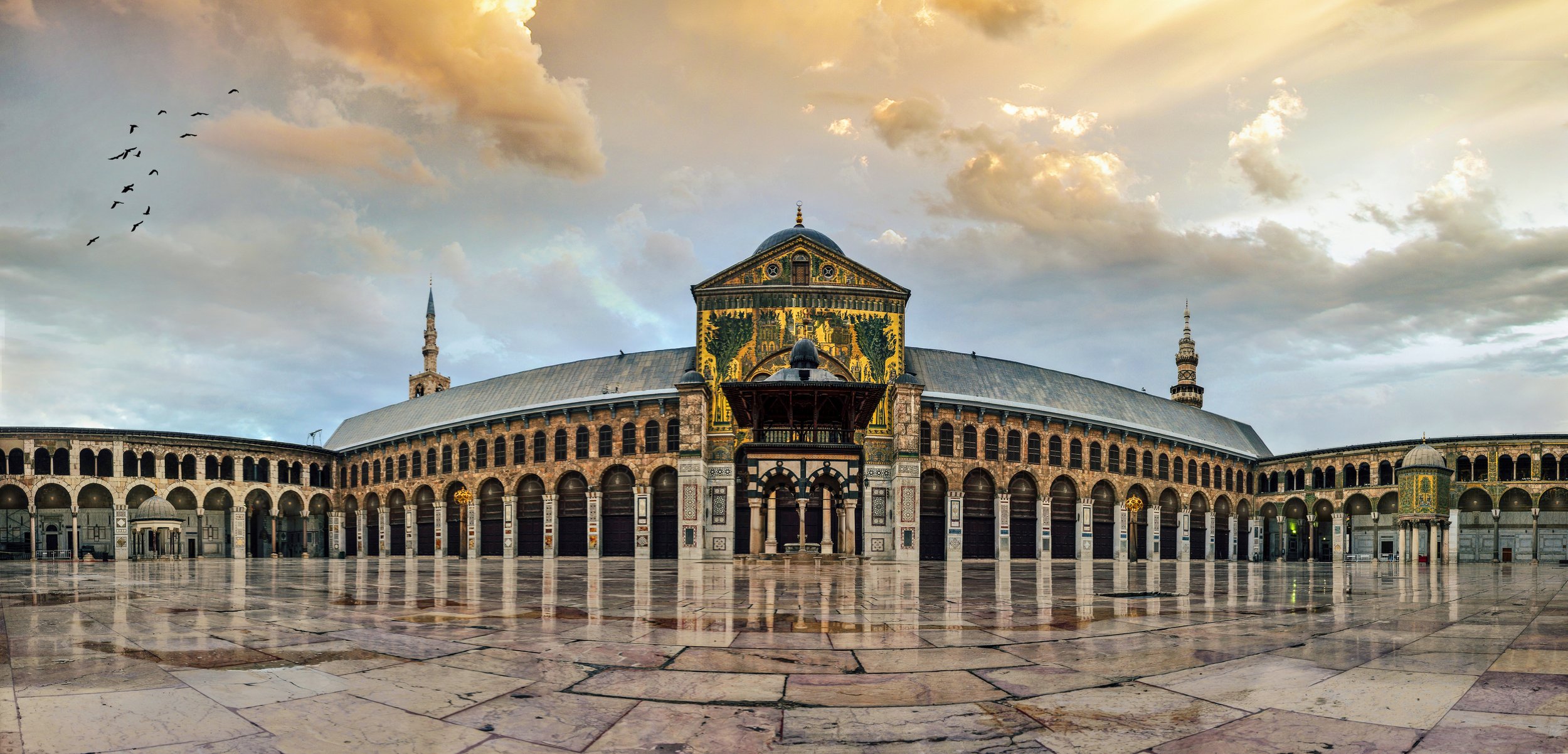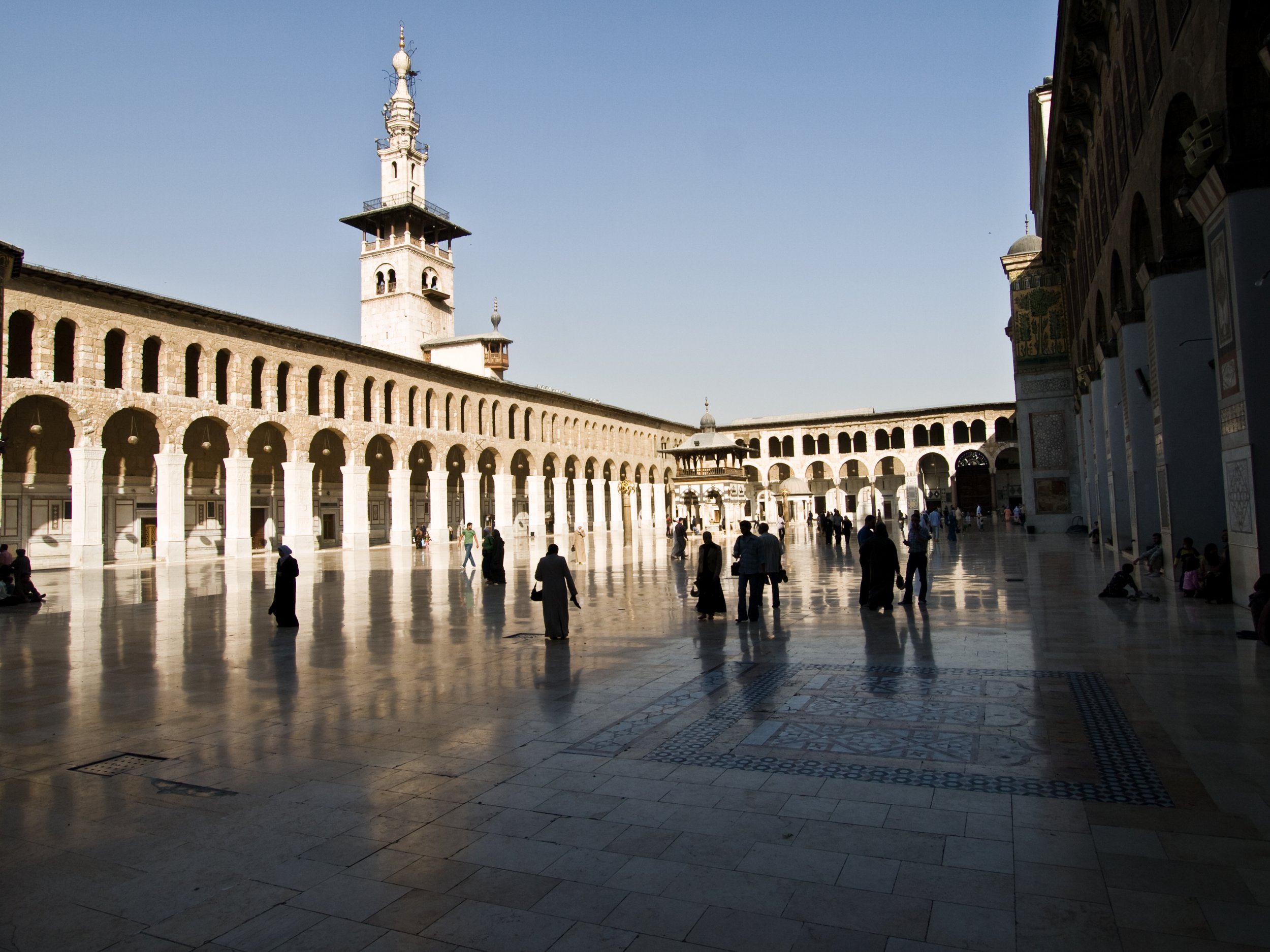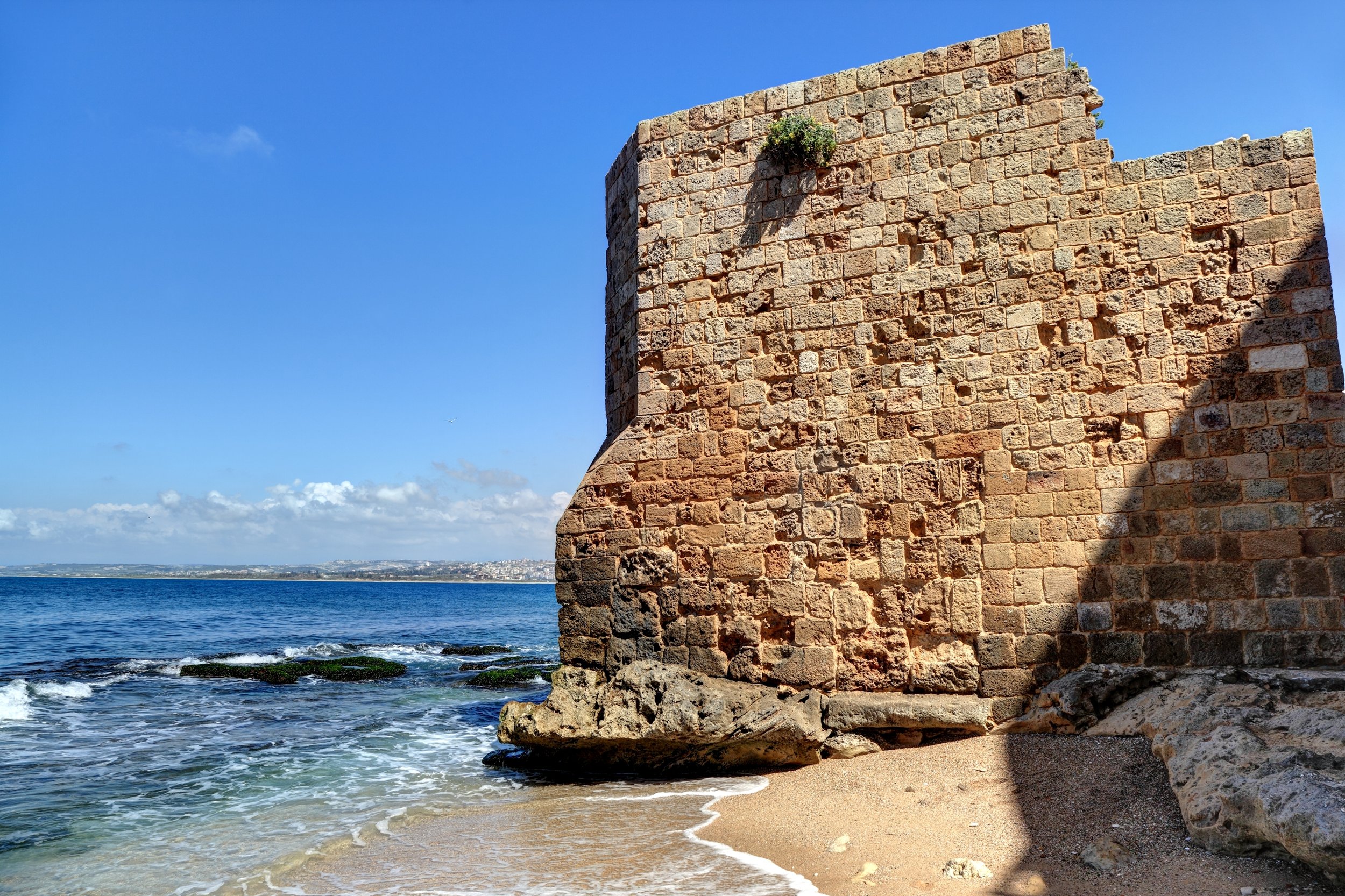This biography is excerpted from the introduction to IGI’s Al-Khasa’is al-Muhammadiyya, which includes a translation of Imam ‘Izz al-Din ibn Abd al-Salaam’s Bidayah al-Sul fi Tafdil al-Rasul.
He is Abu Muhammad ‘Izz al-Din ibn ‘Abd al-’Aziz ibn ‘Abd al-Salam ibn Abi al-Qasim al-Sulami. He was of Moroccan origin but born in Damascus. However, he later resided in Egypt and passed away there. He was Shafi’i in madhhab and is nicknamed “Sultan al-‘Ulama’”.
His Birth and Death
Historians have agreed that Imam ‘Izz al-Din passed away in Egypt in the year 660 AH (1260 CE). They are also in agreement that he was born in Damascus, Syria. However, they differed over whether the year of his birth was 577 AH (1181 CE) or 578 AH (1182 CE).
His Upbringing and His Seeking Knowledge
The books of history and hagiography do not record anything of note regarding the upbringing of al-‘Izz or his family, except what Ibn al-Subki narrates, that in the beginning of his life, he was extremely poor. And he didn’t seek knowledge until he was older. That (Ibn al-Subki’s words) is an allusion to the fact that he (may Allah have mercy on him) grew up in an undistinguished, poor family that had no relationship with knowledge, nor were they connect in any way to wealth, prestige or authority.
However, this state did not prevent Imam ‘Izz al-Din from embarking upon the path of Sacred knowledge, nor deprive him of earnestness, patience and or his persistence in attempting to obtain it. Rather, the fact that he was fully grown may have helped him consume and absorb knowledge, to penetrate its understandings and to fairly assess its intricate details.
Historians are in agreement that Imam ‘Izz al-Din was born in Damascus, Syria.
His Teachers
During his time, Damascus was a center of learning and had one of the greatest concentrations of Scholars in the Islamic world. So, there is no shortage of notable Scholars with whom he would have studied. Nevertheless, among the most notable of his Shaykhs are:
Jamal al-Din ‘Abd al-Samad ibn Muhammad al-Harastani al-Shafi’i
Fakhr al-Din ‘Abd al-Rahman ibn Muhammad ibn ‘Asakir, the Shaykh of the Shafi’is in Sham
Sayf al-Din ‘Ali ibn ‘Ali ibn Muhammad, famously known as al-Amidi
Abu Hafs ‘Umar ibn Tabrazadh al-Baghdadi
Abu ‘Ali Hanbal ibn Abdullah ibn al-Faraj al-Rasafi al-Hanbali
Abu Tahir Barakat ibn Ibrahim al-Khushu’i
Abu al-Hasan Diya’ al-Din ‘Abd al-Latif ibn Isma’il ibn Abi Sa’d al-Baghdadi
His Students
Many distinguished Scholars obtained knowledge from the Imam. And he trained to fruition a number of star pupils. Few Scholars have trained as many.
Al-Kutubi said in Fawat al-Wafayat,
“Many students traveled from distant lands to learn from him, and many Imams obtain their authorization upon his hands.”
Among his most distinguished students are:
Taqi al-Din Abu al-Fath Muhammad ibn ‘Ali ibn Wahb ibn Daqiq al-‘Id
Shihab al-Din Abu Shammah ‘Abd al-Rahman ibn Isma’il al-Maqdisi al-Dimashqi
Taj al-Din ‘Abd al-Rahman ibn Ibrahim, famously known as al-Farkah
‘Ala al-Din Abu al-Hasan ‘Ali ibn Muhammad ibn ‘Abd al-Rahman al-Baji
Taj al-Din ‘Abd al-Wahhab ibn Khalaf ibn Bint al-A’azz
Sharaf al-Din ‘Abd al-Latif ibn al-Imam al-‘Izz ibn ‘Abd al-Salam
During the time of Imam ‘Izz al-Din ibn ‘Abd al-Salaam, Damascus was a center of learning and had one of the greatest concentrations of Scholars in the Islamic world.
His Scholarly Status and the Praise of the Scholars of Him
His student, Abu Shammah, said,
“He was the person most qualified to preach and to be an Imam. He dispelled many of the innovations that the preachers were practicing.”
Ibn al-Subki said,
One of the works included in IGI’s Al-Khasa’is al-Muhammadiyya wa Sharaf al-Umma al-Nabawiyya is Imam ‘Izz ibn ‘Abd al-Salaam’s Bidayat al-Sul
“He is the Shaykh of Islam and of the Muslims, one of the most distinguished Imams, the leader of the Scholars, the unrivaled Imam of his time who steadfastly commanded the good and forbade evil in his time. He was well-versed in the realities of the Sacred Law and its hidden aspects, cognizant of its objectives. He neither met anyone equal to himself nor met anyone who had met his equal in knowledge, scrupulousness, standing for the truth, bravery, mental strength or authoritative word.”
Al-Hafiz ibn Hajar said,
“He was of lofty aspirations whose understanding penetrated the depth of knowledge. He taught, gave legal verdicts and authored books, and he excelled at all that, such that he was described as having reached the level of ijtihad. He trained a number of Scholars to mastery. He would always stand for good, fearing in that neither old nor young. And, he was an ascetic, abstinent, scrupulous and a polymath.”
Ibn Qadi Shubah said,
“He excelled in the madhhab, surpassing his peers and colleagues. He gathered together all kinds of knowledge such as Tafsir, Hadith, jurisprudence, fundamentals of the religion, the Arabic language, knowledge of people’s differing views and their sources for their views, to such an extent that it was said that he reached the level of ijtihad. And students flocked to him from every land.”
Imam ‘Izz al-Din was sought out by the people of different lands for legal verdicts, and his legal verdicts were carried to distant lands by travelers.
Al-Katbi said,
“He taught, gave legal verdicts, wrote books and excelled in the madhhab. He reached the level of ijtihad.”
Ibn Kathir said,
“Leadership in the madhhab returned to him. He was sought out for legal verdicts from every corner of the Earth. However, at the end of his life, he did not restrict himself to the madhhab. Rather, he was more open and gave verdicts according to his own ijtihad.”
Al-Yunayni said,
“He received requests for legal verdicts from every region. However, at the end of his life, he would not restrict his legal verdicts to the dictates of the madhhab of Imam al-Shafi’i. Rather, he would give legal verdict according to his own ijtihad and the evidence to which he gave precedence.”
He (may Allah have mercy on him) would reproach extremism with regard to the schools of law and he would censure the inflexibility of the followers of the schools.
He said:
“One of the most astonishing things is that there are jurists who follow (a school of law), who discover a weakness in the source of his Imam, the weakness of which he cannot dispel.
“Despite this, he follows him in that and abandons the evidence of the Book, the Sunnah and valid analogy for his school of law, displaying inflexibility in his following of his Imam. In fact, he ponders ways to depart from the outward import of the Book and the Sunnah and to interpret them both with outlandish, invalid interpretations, all in an effort to defend the one who he follows.”
Scholars of the age acknowledged that Imam ‘Izz al-Din had surpassed his peers until no one at that time, in Damascus, was more qualified to give legal verdicts than him.
His Scrupulousness and Trustworthiness
From what we have already discussed, we already recognized that Imam ‘Izz al-Din was sought out by the people of different lands for legal verdicts, and his legal verdicts were carried to distant lands by travelers. And Imam ‘Izz al-Din acknowledged his ability to give legal verdicts at a time when he turned his attention towards the strife in Damascus, despite his dislike and dissatisfaction with legal verdicts because he believed that the mufti was on the verge of tumbling into Hell. Such acknowledgement from him was a way of acknowledging that he had surpassed his peers until no one at that time, in Damascus, was more qualified to give legal verdicts than him.
Nevertheless, that lofty position and high status in knowledge did not prevent this great Imam from standing for the truth, and returning to it, whenever he gave a legal verdict, which later understood to be incorrect, adhering to the rules of giving legal verdicts, fear of Allah and awe of His majesty.
Ibn al-Subki and al-Dawudi both narrate that he gave a legal verdict once. Then, he came to know that it was incorrect. So, he announced against himself in the markets:
“If anyone gives you such and such legal verdict, do not act on it. For it is a mistake.”
Historians narrate that during the final illness of the ruler of Egypt, al-Malik al-Zahir, he dispatched a letter to Imam ‘Izz al-DIn requesting him to confirm the assignments that he had given to his children.
He responded,
“None of them are appropriate for that. Rather, Qadi Taj al-Din [meaning Ibn Bint al-A’azz] is the one that is capable for that.”
Imam ‘Izz al-DIn acknowledged his ability to give legal verdicts at a time when he turned his attention towards the strife in Damascus.
His Decisive Stand against a Ruler
The most important historical episode of note in this regard was his fierce rebuke of al-Salih Isma’il, the sovereign of Damascus.
In the year 635 AH, which marked the advent of al-Salih Isma’il’s reign, a number of minor political disputes arose between the Damascene sovereign and his nephew, Najm al-Din, who reigned over Egypt. Najm al-Din advanced his army in the hopes of capturing Damascus and incorporating it in his realm.
Al-Salih Isma’il was alarmed by this mobilization, and to maintain his rule, forged military alliances with the neighbouring Crusader forces – who were colloquially known as the Christian Franks (al-Afranj) –situated in the coastal plains of Syria. To attain the military support of the Crusaders, al-Salih Isma’il granted them control of a number of strategically-significant towns, such as Shaqif, Safad, Tyre, and Tiberias. Every one of these settlements held a high degree of political and religious significance, and their loss threatened the security of the general population living in the now-exposed mainland of the Levant.
This was further aggravated by al-Salih Isma’il permitting the Crusader forces to acquire arms and weaponry from the markets of Damascus. These appeasing policies angered ‘Izz ibn ‘Abd al-Salam; to stem their effects, he undertook two pivotal counter-measures:
He communicated a fatwa in the polity which prohibited the trade of any weaponry to the aggrandizing Crusaders.
He vocally criticized the treacherous policy of the ruler, even going as far as explicitly mentioning his name from the minbar during the Friday khutbah.
Imam ‘Izz al-Din ibn ‘Abd al-Salam took a stand against the Sultan al-Salih Isma’il, after the sultan had granted the Crusaders control of important cities such as Tyre, among other injustices.
Moreover, ‘Izz ibn ‘Abd al-Salam did not hesitate to point out the corrupt wrongdoings of the Muslim sovereign, particularly when the latter failed to adequately address the moral ills that were prevalent in the greater community.
Despite the immorality plaguing many districts and sectors, the overwhelming majority of scholars were silent due to their fear of the ruler’s wrath. But ‘Izz ibn ‘Abd al-Salam was propelled by the sense of religious duty, and he accordingly felt obliged to address any form of evil that persisted in society; to combat such vices, he adopted a stringent and unrelenting stance.
In this regard, the famous jurist Taqi al-Din al-Subki relates the following famous historical episode:
I heard the Sheikh and Imam narrate:
“I heard our Sheikh al-Bājī say: ‘On one particular Eid, Sheikh ʿIzz al-Dīn went to the Citadel to meet the Sultan. He found the army fully decorated within the inner court of the sovereign, as it was customary in Egypt for the entrants to be elaborately adorned, and they would then kiss the floor that the Sultan graced.
“‘But the Sheikh [‘Izz ibn ‘Abd al-Salam] turned to the Sultan and addressed him directly by stating:
“‘O Ayyūb, how will you respond before Allah when He asks you, “Did I not confer to you the land of Egypt, yet you authorized the sale of alcohol?”’
[The Sultan] asked: ‘Is that indeed the case?’
[‘Izz ibn ‘Abd al-Salam] retorted: ‘Yes indeed, for wine is sold in such-and-such tavern’ – and he enumerated other immoral acts (munkarāt) as well – ‘while you indulge in the vain luxuries of this domain!’ He issued this reminder with a loud and unrelenting voice, despite the army presiding before him.
[The Sultan] replied: ‘My master, I did not bring forth such vices, for they originated during the reign of my father.’
[‘Izz ibn ‘Abd al-Salam] said: ‘And what is this? Are you from among those who say: “We found our forefathers following a way, and we are following in their footsteps”?’
Accordingly, the Sultan ordered for the tavern to be closed at once.”
I heard the Sheikh and Imam say that he heard al-Bājī say:
“After publicly undertaking this act of good and returning from the Sultan, I asked [‘Izz ibn ‘Abd al-Salam]: ‘How are you, my master?’
“He retorted: ‘My son, I found [the Sultan] in that state of splendour and sought to debase him, lest he become inflated with conceit.’
“I thereafter asked him, ‘But did you fear him, my master?’
“He responded, ‘My son, by Allah I swear that when I recollected the majesty of Allah in my heart, the Sultan standing before me became like a kitten!’”
After the sultan granted the Crusaders control of the city of Tiberias, Imam ‘Izz al-Din ibn ‘Abd al-Salam gave a fatwa prohibiting the trade of any weaponry with Crusaders.
His Abstinence in This World
The head judge, Badr al-Din ibn Jama’ah narrates that when a severe drought hit Damascus, and orchards were being sold for little, his wife gave him some jewelry and said,
“Buy us an orchard from which we can suffice ourselves.”
He took the jewelry, sold it and gave its proceeds away in charity.
She asked him,
“My Master! Did you buy us an orchard?”
He replied,
“Yes. An orchard in Paradise. I found that people were in difficulty, so I gave its proceeds in charity.”
She said,
“May Allah reward you!”
It has also been narrated that he would sometimes cut his turban and give a part of it to a poor person who asked him for something, if he did not have anything other than that to give.
Historians have agreed that Imam ‘Izz al-DIn passed away in Egypt in the year 660 AH (1260 CE).
His Works
Imam al-‘Izz left behind a large number of valuable works in different disciplines. Among his works that have been published are:
Al-Anwa’ fi ‘Ilm al-Tawhid
Targhib Ahl al-Islam fi Sukna al-Sham
Shajarah al-Ma’arif wa al-Ahwal wa Salih al-Aqwal wa al-A’mal
Al-Fitan wa al-Balaya wa al-Mihan wa al-Razaya
Al-Farq Bayn al-Islam wa al-Iman
Al-Fawa’id fi Mushkil al-Qur’an
Milhah al-I’tiqad
Wasiyyah al-Shaykh al-‘Izz
Al-Ghayah fi Ikhtisar Nihayah al-Matlab fi Dirayah al-Madhhab
IGI Patreon members get early access to translations, original works, and excerpts like this one.
Imam Ibn ‘Abd al-Salam’s Bidayat al-Sul fi Tafdil al-Rasul is one of the works included in IGI’s Al-Khasa’is al-Muhammadiyya











